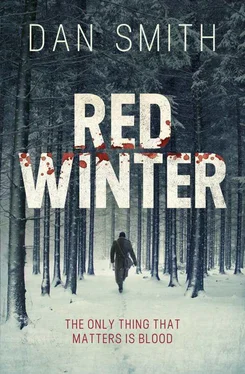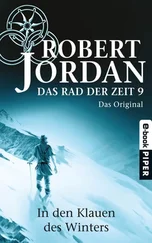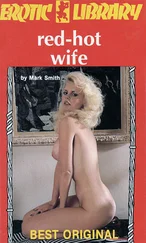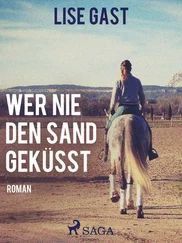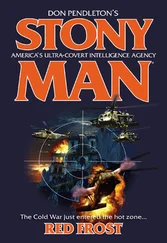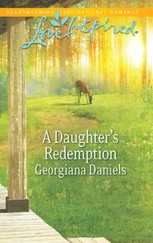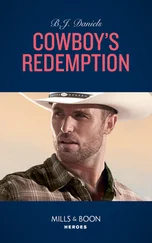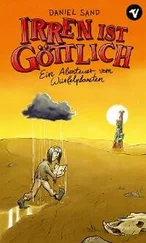‘What now, though?’ I had intended to further investigate the forest beyond the lake before returning to follow the treeline close to the road the women had taken, but hearing horses in the village had put a stop to that. I wouldn’t be able to return to the road yet.
‘We’ll go north,’ I said to Kashtan. ‘That’s where they said they were headed, so we’ll keep going that way until we’re out of the forest. Then we’ll think again. Maybe even look for the road.’ I tried to sound hopeful. ‘Perhaps find Tanya and Lyudmila. God knows I could use the company.’ And they had been following Koschei for some time. We could work together to find him.
‘They weren’t there,’ I said. ‘My boys. They weren’t there. I’m sure of that.’ I stood and put my face against Kashtan’s. ‘That means they might still be alive. Maybe even Marianna too.’
He likes to drown the women.
No. I couldn’t let myself believe that.
‘You think they’re out here somewhere on their own? That they got away?’ I turned and looked behind me. ‘Maybe we should double-back. Lay a false trail and… They might be hiding in the forest right now. Or they might have gone home to wait and…’ The possibilities tore at my resolve and I wished I could split myself and go in different directions, but I could make only one choice, so I had to assume Koschei had them. It was the most likely of all the alternatives that tumbled through my mind, and I made myself concentrate on why I believed that.
Koschei had visited the village a week ago, maybe a little longer, according to Galina in one of her rare moments of lucidity. If Marianna and the boys had managed to escape, I was sure they would have returned home by now, but I had seen no sign of recent activity there. Nor had I found their bodies – not of any of the women or children – and I couldn’t afford to run blind through the forest searching for them while Koschei moved further and further from me. Returning would waste precious time and increase the possibility of coming face to face with whoever might be following me.
Pursuing Koschei was my only choice.
‘God, I hope they took prisoners. You think they took prisoners?’ I touched the chotki on my wrist.
Please let them have taken prisoners.
I stood back and looked at Kashtan, my only friend. ‘I’m sorry I scared you. You ready to go now? You ready to help me find them?’
Kashtan snorted, bowing her head up and down as if she had understood me.
She looked fine, so I rolled the blankets and tarpaulin, securing them behind the saddle, then climbed onto her back, but it wasn’t long before she began to favour her right foot, her head bobbing down each time she put pressure on the left.
My own weight was adding to her pain, so I climbed down and led her through the forest, checking the compass every now and then to make sure we were headed the right way.
We turned this way and that, never moving in a straight line, stopping from time to time to cover any tracks we had left. If anyone had found our trail in Belev and was following us, it would be difficult for them to hunt us in here, and there would be breaks in our trail, places where we seemed to simply disappear. Our erratic journey through the trees would make it almost impossible to pick up the trail once more. Travelling like that took longer and was more tiring, but if it threw potential hunters off our tracks, it would be worth it.
I was of no use to Marianna and the boys if I were dead.
Passing from the gloom into the dull evening light after hours in the forest was like emerging from the underworld. Leaving that darkness was a blessing and the relief was tangible. The air tasted fresher, the expansive sky spread above, and the steppe stretched out before me, a vast sea of frosted grass and thistle and dandelion, scattered with lonely islands of hawthorn and oak. There was cover to be found among the trees behind me, but right now it felt safer to be in the open. In there, anyone following was invisible, and there was a constant sensation of being watched, of being pursued. On the steppe, nothing could hide.
Out here, I could kill my enemies; in there, they were just wisps of imagination.
I estimated there was still an hour or so of daylight left, so we pressed on.
I led Kashtan across the steppe, moving north towards a cluster of trees and elderberry shrubs, and we walked for half an hour before the distant copse began to take shape. A small collection of barren oak and maple, their naked branches laden with the dark and tangled balls of crows’ nests. Seeing the first sign of a rooftop just to the east of them, I stopped and took the binoculars from my saddlebag.
‘Let’s see what we have,’ I spoke aloud, as I put the cold lenses to my eyes and scanned west to east.
The isolated farm was still too far away to see much, but there were at least two buildings: a small, one-roomed farmhouse, not much more than a hovel, and what looked like a barn. In front of them, a field with the late crop rows of alternating green and brown.
‘There might be tools,’ I said to Kashtan. ‘A new shoe. Somewhere for you to rest. We’ll have to get closer.’ I lowered the binoculars and narrowed my eyes against the cold. ‘See if anyone’s there.’
It was a risk to venture close to anywhere occupied. There was no certainty of finding sympathy from anyone. If the farm was occupied, we were as likely to be run off by angry, frightened peasants as we were to be welcomed, but we had no choice. Kashtan needed help. We both needed to rest.
We carried on as the light faded and the temperature dropped. As night approached, so the wind picked up, moaning as it wheeled across the steppe, a lilting tone, deep and mournful.
I wrapped my scarf tight and walked with my head down to cut through it, stopping from time to time to watch the farm.
Coming closer, I saw the smoke from one of the buildings, caught in the wind and almost horizontal as it streamed from the chimney, but there was no other sign the place was occupied. No horses, no activity, and we continued until I could smell the faint odour of burning wood in the breeze.
The wind was a constant nuisance, as if its intention was to hinder us, and the long, frosty grass was difficult to tread, so our progress was slow, and the closer we came to the farm, the more eager I was to find a warm welcome. But as we reached the edge of the field, scattering a flock of scavenging crows into the air with a raucous cry, I stopped and checked my revolver. I tested the action on my rifle and unfastened two coat buttons so I would be able to slip my hand inside and reach for the knife on my belt if necessary.
If the reception we received was hostile, I was more than ready to meet it.
When I was satisfied my weapons were good, I raised the binoculars to scan the buildings once more, this time seeing a single figure emerge from the house.
The man crossed the yard towards the barn and was almost there when the door to the farmhouse opened again and a second figure, a child, came running out to join him. The child was followed by a dog, which stopped on the threshold and looked towards me. Black-haired and long-legged, it looked almost like a wolf, and when the man turned to look at the boy, he noticed the dog, then followed the direction of its attention, catching sight of Kashtan and me on the other side of the field. He froze for a second before reaching out and pulling the boy close. I held the two of them in the magnified lenses of the binoculars and studied them, wishing I could see them better.
They looked to be peasants, farmers, not soldiers, but it was impossible to be sure. Without my rifle and my pistol, my own clothes would belie what I really was, just as theirs might be doing right now. Regardless of that, they had seen us and I had a decision to make. The man could be unfriendly, and he and the boy might not be alone.
Читать дальше
